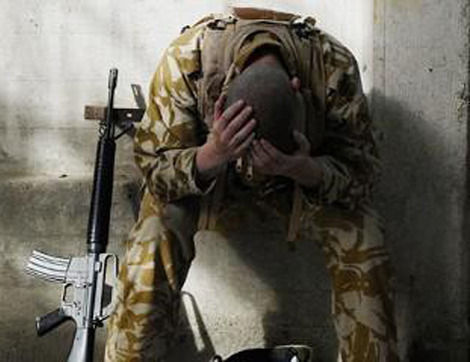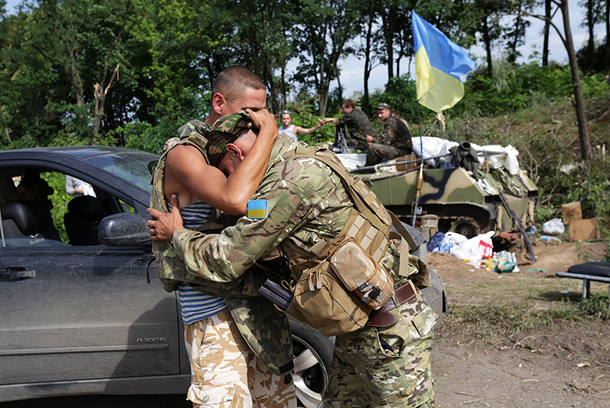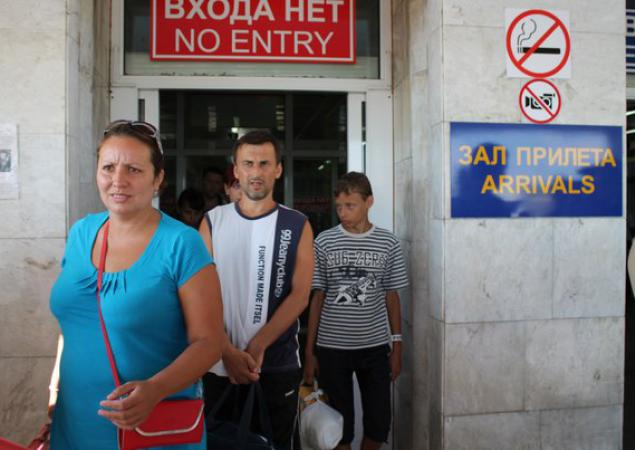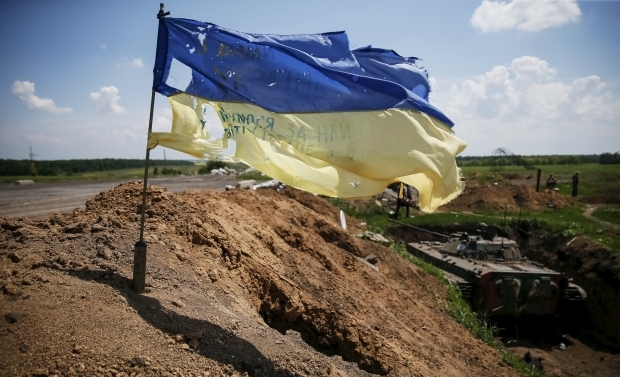Much has been written about PTSD and the Donbas Syndrome, but not many people have seen it with their own eyes. By chance, I was witness to what havoc and misunderstanding PTSD can cause when I travelled in the same train compartment as a young soldier on leave.
22:15 – on the platform of Kyiv Railway Station
Train No.249 Kyiv-Chernivtsi. My fellow travellers – a young man and woman (both students). In walks a slim man about 35 years old. He takes off his army backpack… obviously a soldier on leave or returning home.
– “Good evening, folks!” he says with a smile.
– “Good evening.” we reply.
Beside him stands an attractive woman. She strokes his head affectionately, calling him “my little teddy bear”. A few minutes later, the conductor asks all visitors to leave the train. The two lovers say goodbye. Tears well up in his eyes. The woman is on the platform, waving and blowing kisses to the soldier who shouts loudly through the closed window:
“Sweetheart, I love you! Hey, my sweet little kitten, I love you! I’m so sorry… for being this way. I promise you, my love, I’ll get better and be myself again!”
I hear passengers in the neighbouring compartment whispering: “This is real love!” “This is so nice!” “I wonder what he did wrong?”…
No.249 train leaves Kyiv…
22:50 – the conductor
– “Your tickets, please.” says the conductor standing at the door of our compartment “So, what do I have here?… Ternopil, Lviv, Chernivtsi… And the soldier – also to Chernivtsi. Fine.”
The soldier takes a bottle of whiskey out of his bag and puts it on the table. He stares at it, and leaves it there. He turns to his bed, waves his hands in the air and lies down. He asks us to leave the door open because he doesn’t feel comfortable in total darkness.
23:30 – the first cries
As the train chug-a-lugs through the countryside, eyelids close and heads droop. Suddenly, the soldier lying on the top bunk starts mumbling in his sleep:
– “I’ll kill everybody! Strangle them with my bare hands! I’ll find every single one…”
He continues shouting and muttering for 20 minutes. The young girl can’t take it anymore, leans over and gently touches his hand. A mad cry rings out in the darkness.
– “Aaaaaah! Who’s there? Go away, don’t get near me! I’ll kill you, you bastard!”
The young lady shakes in fear. She flies out the door and runs to get the conductor, but the soldier has already fallen fast asleep.
– “I refuse to stay in this compartment. I’m scared. There’s something wrong with him. He says he wants to kill us. Please, put me somewhere else. I can’t listen to him anymore…”
– “Don’t be afraid, dear. He’s just returned from the war. He’s in bad shape. Maybe you should try to understand…” says the conductor.
– “No, I’m afraid to sleep here!”
– “OK, I’ll think of something. Come on.”
The girl gets her bag, throws her jacket over her shoulder, and follows the conductor.
00:10 – shelling and gunfire
The train gathers speed and the clicking noise of the train gets louder. His voice cries out hysterically:
– “Guys, get back in the trenches! They’re shelling us again!”
The soldier jumps from the top bunk. He starts shaking both of us.
– “Kolia, come on, get over here, close to me. Taras, hurry up! Get going!”
Half asleep, I don’t understand what’s happening. But, I slide out of bed and kneel down on the floor beside the soldier. The student does the same. A few minutes silence, as we bend over, our hands covering our heads until the conductor appears in the doorway.
– “Guys, are you all right?” he asks in surprise.
Nobody answers. Frankly, we’re afraid to speak. Finally, the clicking noise recedes and the soldier seems to regain his senses. We ask him his name.
– “Yaroslav. Sorry, I don’t feel well… but, that’s how it is. I’ll get some medical help in Chernivtsi and head back east… to fight. The guys are waiting for me.”
We ask him to tell us more.
– “I’m a reconnaissance officer. I can’t tell you more.” And he climbs back onto the top bunk.
03:30 – mother and home
Cries, groans and sighs… every 10-20 minutes, for the third consecutive hour. We lie motionless and try to imagine what Yaroslav is seeing in his dreams… horrible, terrifying scenes, probably. Suddenly, his voice becomes soft and tender:
– Mom, don’t cry. I’ll be back soon. Mommy dearest, why are you crying? Look, I’m alive and well. How’s Dad? Still angry at me?”
I feel the tears running down my cheeks…
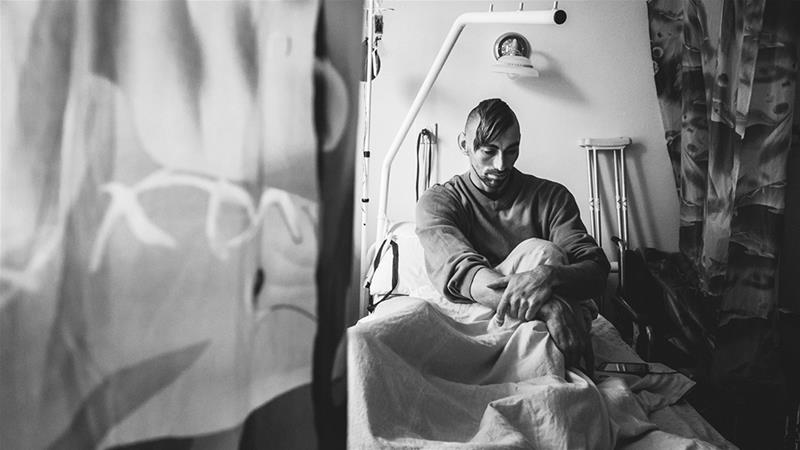
Photo: Ioana Moldovan, Al Jazeera
04:10 – the battalion surrounded by “separatists”
Yaroslav wakes me with a sharp blow to the shoulder.
– “Ivan, hear that? “Separs”!!! Where’s Taras? Can you hear me?”
I decide to keep quiet, hoping he’ll calm down. But, Yaroslav continues:
– “So, that the way you want it, you bastards! I’ll get you, just you wait!”
The soldier begins hammering his fists against the walls of the train. Angry voices from the neighbouring compartments… Several passengers complain loudly to the conductor:
– “Calm him down, will you? He’s had too much to drink… just another drunk that wants to party all night. Throw him off the train, or we will!”
The conductor rises to the occasion:
– “Sorry, folks, can’t do that! First, he’s not drunk and second, he’s a soldier on leave. I saw his documents.”
The nervous and exasperated passengers silently return to their compartments. Yaroslav seems to have calmed down. He’s fast asleep. Silence at last…
05:55 – war… again
Once again I hear Yaroslav fighting with his demons. Suddenly, he tumbles from the top bunk and hits his head against the table. I want to help him get up, but he attacks me with a mad cry:
– “Who are you? What do you want from me?”
– “Hey, it’s Mykola.”
– “What are you doing here?”
– “Everything’s fine. Let’s change places because I’m afraid you’ll fall off again.”
Yaroslav is not convinced. He re-surfaces, apologizes for making so much noise and climbs back up. But not for long… after 20 minutes he falls to the floor again.
– “No, my friend, it’s not gonna work. Lie down here, and I’ll go up.” says the student.
– “OK. Thanks, Taras.” mutters Yaroslav.
It’s 7:00 a.m. 26 more minutes to Ternopil. I make my bed, pull out my bag and leave the compartment quietly so as not to wake anyone. His voice stops me at the doorway:
– “Good luck, brother! Sorry for not letting you sleep. You understand, I didn’t do it out of malice.”
– “No need to apologize. Thank you for everything, Yaroslav. Thank you for what you’re doing.”
I squeeze his hand and head for the exit.
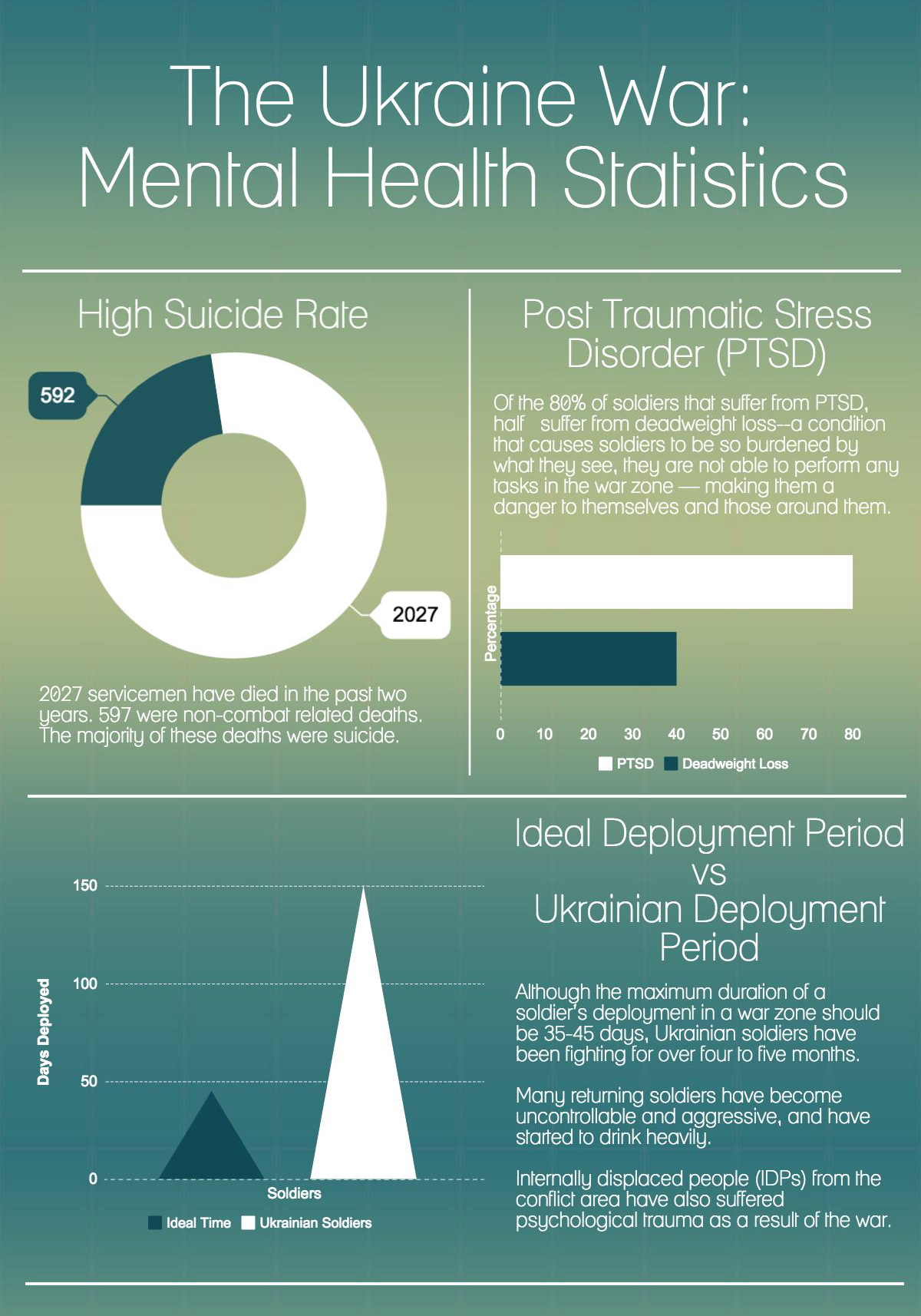
A few days later…
As soon as I return to Kyiv, I set up a meeting with Oleh Viter, doctor at Kyiv City Neurological Hospital No.2 and tell him about the soldier in the train.
– Did we act properly with this man? Can you give us some advice on how to behave in similar situations?
– Soldiers who’ve suffered trauma and wounds in war (not necessarily physical ones) react violently to noises that remind them of life in the front lines. I think you behaved correctly in this case. You should answer such people in a soothing calm voice, and don’t try to convince them that you’re right because nothing will come of it. Such a person is hyper-sensitive and very aggressive, and there’s no way you can reach him.
– Besides actual military experiences, what else might trigger PTSD?
– PTSD (posttraumatic stress disorder) is a mental health problem that some people develop after experiencing or witnessing a life-threatening event, like combat, a natural disaster, a car accident, or sexual assault. It can happen to anyone and each person is affected in different ways, depending on his/her nervous system.
– How is the Donbas Syndrome different from the Afghan or Vietnam Syndromes in American soldiers?
– The criteria for these three syndromes are completely different. For example, what country were you fighting in and why? It’s particularly difficult for Afghan veterans. When they were sent to Afghanistan, they were told they were carrying out an international mission. But, when they came back, they realized that nobody really cared or needed it. It’s different for the guys fighting in the Donbas. They know they’re fighting for their country and they know they’re important and needed.
– How do you treat PTSD? What treatments are available in Ukraine? Can you give us some statistics?
– We don’t have any official statistics. Military hospitals under the Ministry of Defense have such information. All I can say is that an estimated 15-20% of demobilized soldiers suffer from such problems. So far, we’ve only had 418 demobilized soldiers and 10 who are currently fighting in the Donbas.
Actually, there are many, many more soldiers with PTSD out there, but only a few turn to medical institutions for professional help. Why? They’re afraid of psychiatrists. This is another Soviet legacy when people with psychological problems were registered by communist authorities, and this influenced their family life, their jobs and their future.
We don’t register these people right away. First, we send them to a psychologist or a psychotherapist, but not a psychiatrist. There are four medical and psychological care offices on the Left Bank, and three on the Right Bank in Kyiv. Patients get individual outpatient treatment from different specialists – psychiatrists, psychologists, or psychotherapists. I must underline that medication is not the answer; it brings temporary relief, but that’s it. PTSD should be treated with psychotherapy methods. For example, in western countries, 25% of the patients are treated with medication, 75% attend psychotherapy sessions. It’s the opposite in Ukraine.
– Is there a cure for PTSD?
– It’s not easy to treat this syndrome as both the soldier and his family need help. Let me give you an example: an American WWII veteran approached a doctor for help in 1990, that is, 50 years after the war. What I’m trying to say is that PTSD can manifest itself after many years. The syndrome should be explored and researched. I think we’re quite lucky as we get many instructors and specialists from other countries who conduct courses for our doctors… for example, experts from the US and Israel. We can learn a lot from them.
Our expert also believe that if the war continues, there will be more and more people with PTSD, and not only veterans, their families, and IDPs, but also ordinary citizens who take everything to heart, participate in some way or another in the war effort, etc. So, Ukraine needs more specialists, but we have so few…
You see, most doctors have never encountered this kind of problem. We were isolated from the West until the nineties; we weren’t able to communicate or share experiences. Ukrainian psychiatry is currently changing and gradually integrating European medical space.
Yes, unfortunately, the war in the Donbas provides us with material and cases that will help us improve our medical training and research. We must learn to live with it and understand that people with PTSD are not weaklings, idiots or cowards. They’re just ordinary people whose hearts and souls have been “wounded” by the horrors of war.




